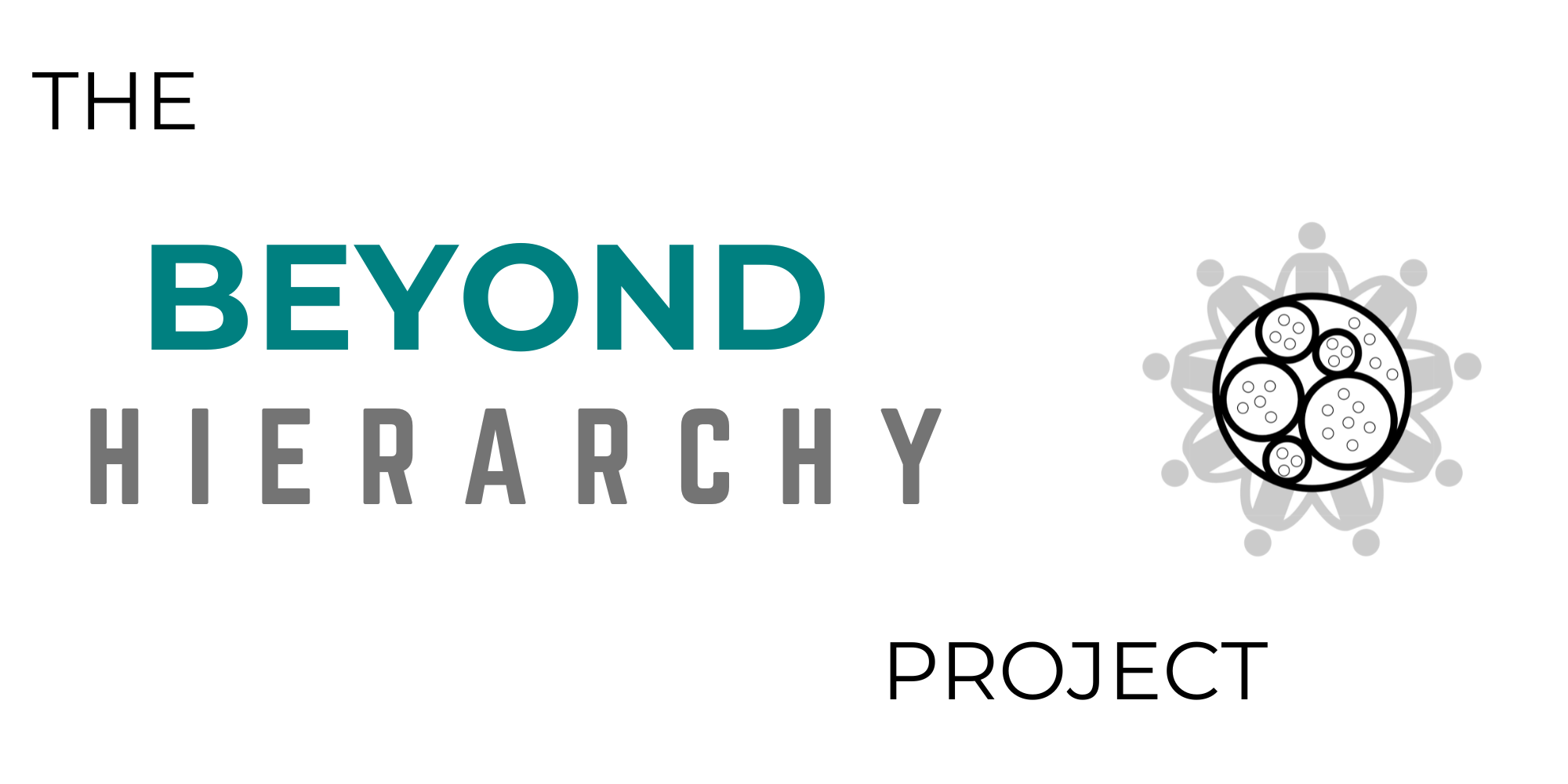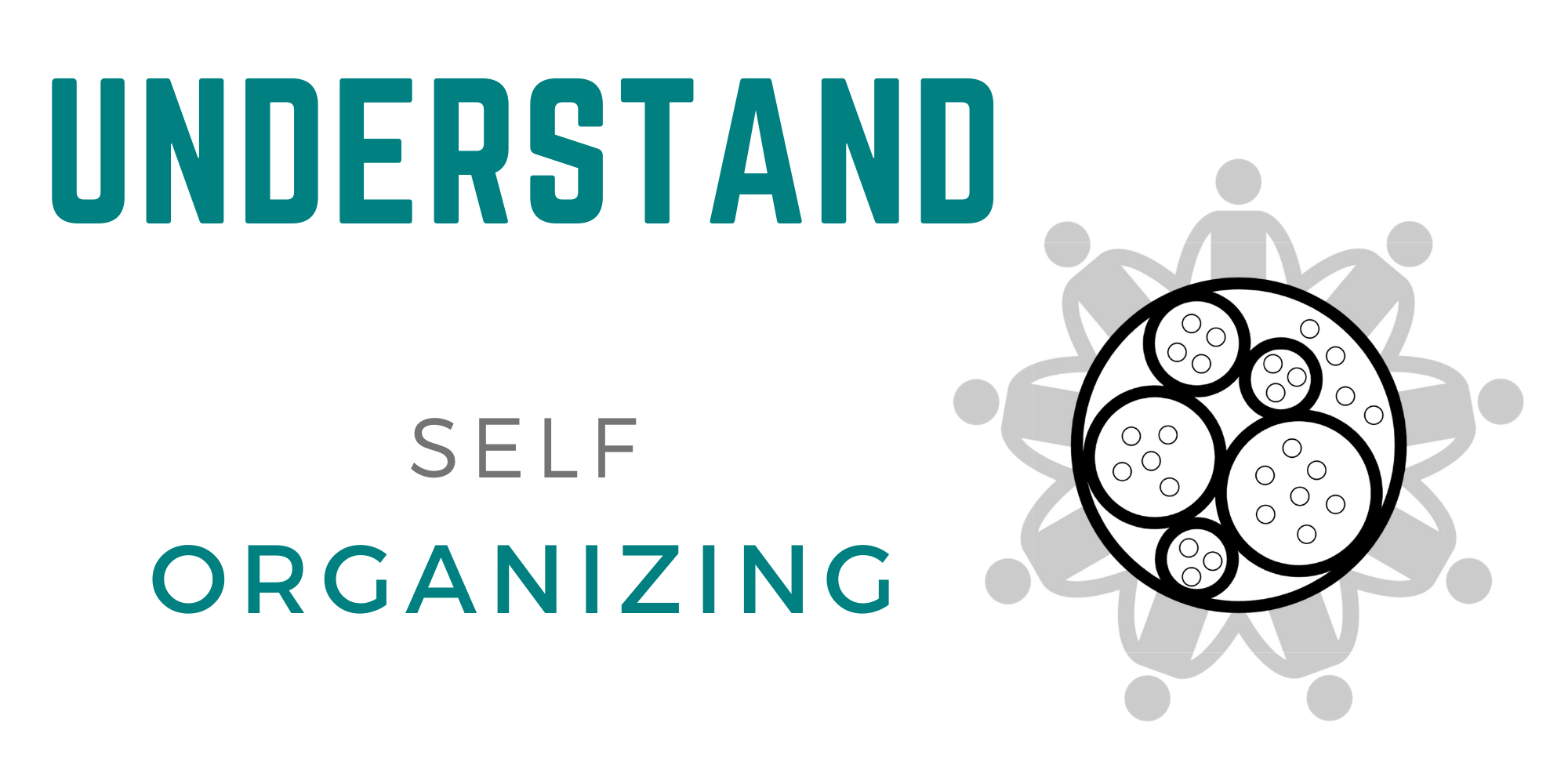
Take a short online course to introduce you to key concepts and enable you to decide if you want to start the self-organizing journey
What is Self-Organizing Beyond Hierarchy?
As it becomes increasingly apparent that the conventional management hierarchy is no longer adequate for today's volatile, uncertain, complex and ambiguous conditions, two other patterns of self-organization are emerging beyond hierarchy: collaborative and agile. These patterns include the constituent parts of self-management, self-organization and self-organizing systems.
This page explains some of these key terms, and the Understand Self-Organization course dives deeper.
Self-Organization generally takes one of the following three forms:
no clear structure or defined processes > chaos

HOME-GROWN/ORGANIC collection of collaborative tools and processes

A rule-based, off-the-shelf system like Holacracy, Sociocracy or the Collaborative Operating System
(or an adaptation of one of these)
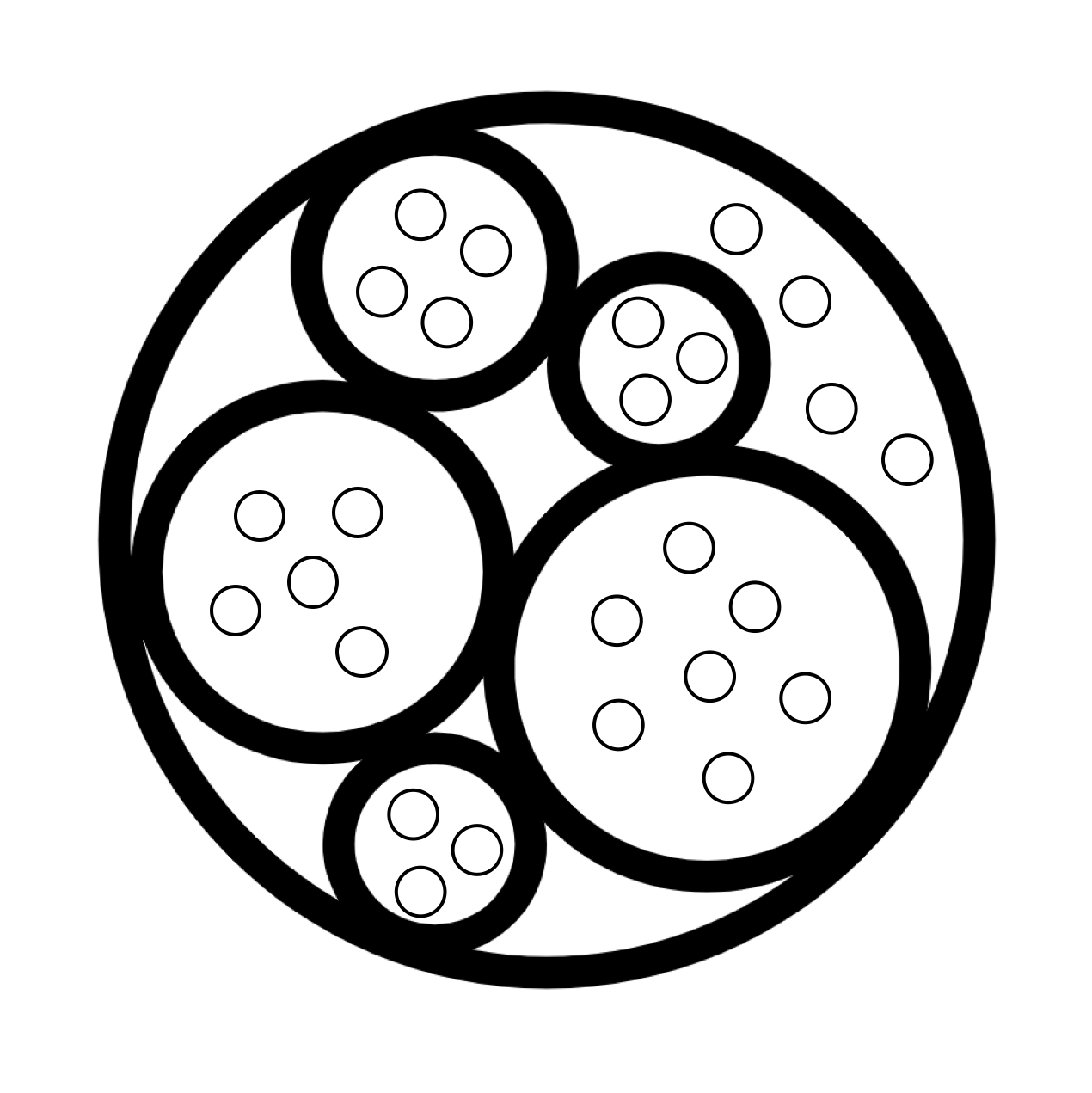
Conscious Collaboration
Where people want to use specific tools or processes to replace top-down hierarchy with more collaborative, inclusive and participatory ways of working, without replacing the whole management structure.
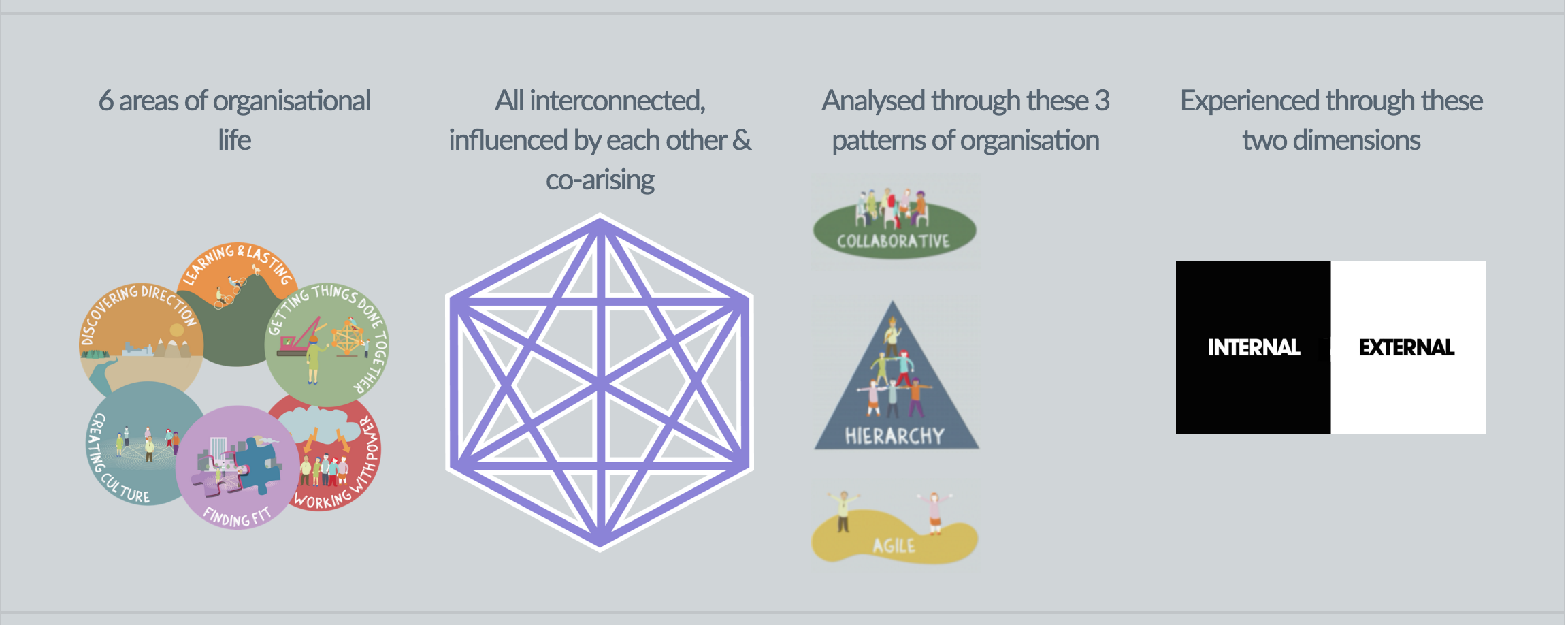
Self-Management/Self-Organization
These terms or often used interchangeably: where some management functions are decentralised into self-managed teams which are empowered to work more autonomously and with less managerial oversight and control than in a conventional management hierarchy.

Rule-Based Self-Organizing Systems
Where leadership and management functions are distributed across a whole organisation as part of a coherent system. The most popular and replicable systems of self-organizing practices are rule-based: Holacracy®, Sociocracy, S3, the Collaborative Operating System, the Viable Systems Model; and there are many organisations which create their own adapted versions.
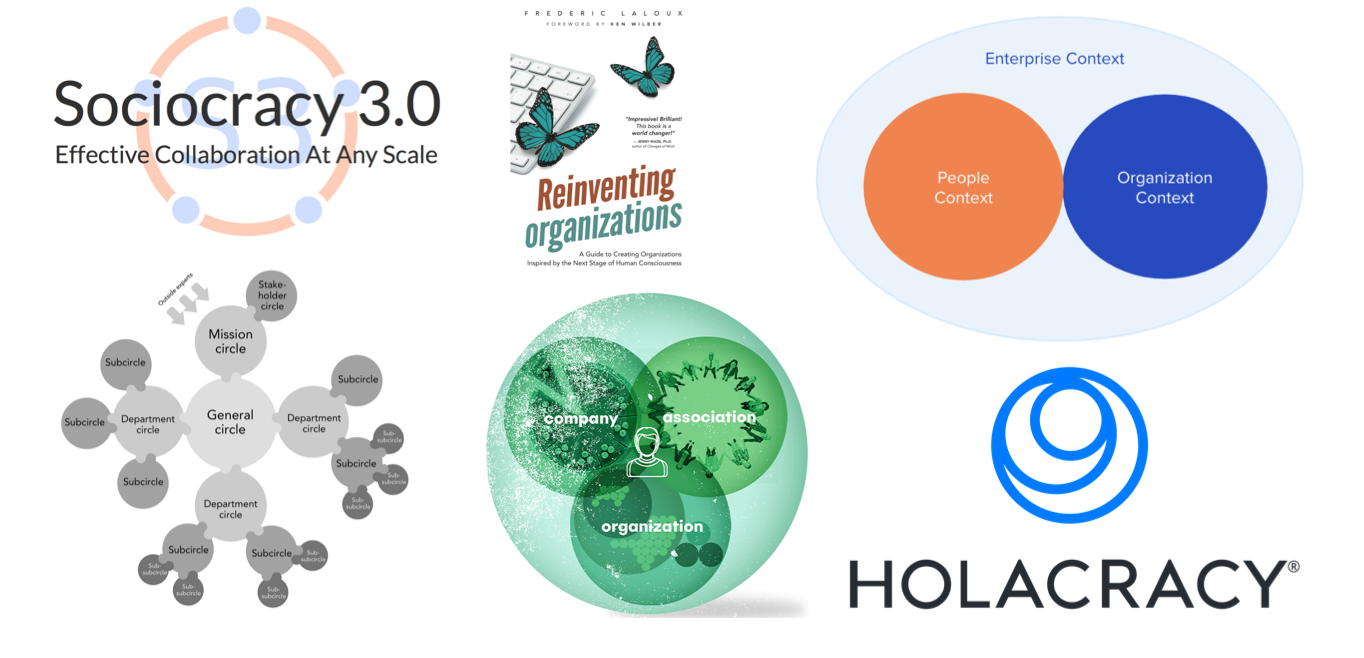
A Self-Organizing System: Holacracy
As one of the most popular self-organizing systems, and considered by many as the gold-standard, Holacracy is a set of practices in which people make meaningful decisions and drive change in pursuit of their shared purpose; by encoding autonomy & agility into their organisation’s DNA.
Another way of describing Holacracy is a way of running organisations without managers. The management hierarchy is removed and replaced by a rule-set which applies equally to everyone. If you are interested in Holacracy then book a session with a Certified Holacracy Coach to explore how we can help you assess your readiness to adopt and start adopting.
Systems of Systems
No single system can completely meet all of an organisation's evolutionary needs by itself. As self-organizing practices mature, gaps emerge which reveal the need for combining multiple systems/practices/tools/ processes/models such as Holacracy, Matrix Leadership, Language of Spaces into a coherent combination such as in the For Purpose Enterprise, or the example explained below in the Symbiotic Enterprise.
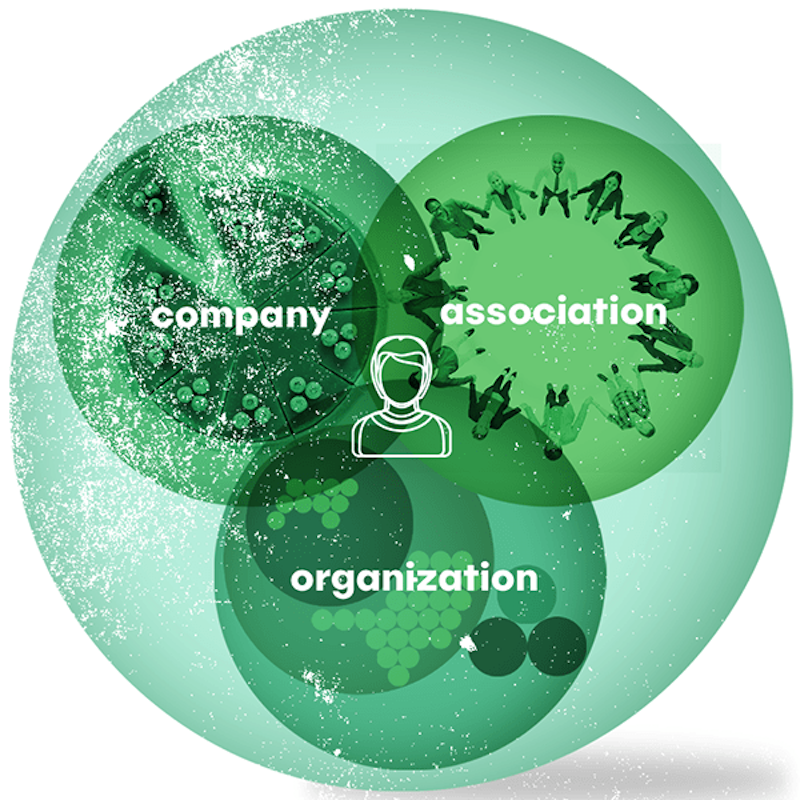
About Your Instructors
Since the mid 1990's I have been studying, researching, experimenting with, practicing and training people how to improve how they work together in teams and organisations. I've worked with thousands of people, (including as a Partner with HolacracyOne, the organization that founded Holacracy) and have distilled the lessons I've learned into a series of online programmes and expert support.
I lead on projects and work with our Associates/ Apprentices/ peers from a wide network of expertise as needed. Our purpose is to inspire, equip and support Changemakers to make changes by upgrading how well your teams are adapted to surviving and thriving in our complex and changing world.
Nick Osborne Founder, Evolving Organisation

Are these Questions Familiar?
What is self-management, how is it different from self-organization and self-organizing systems? Is it better to adopt a pre-packaged self-organizing system or make up our own version? What needs to be considered in the shift and how do I know how to start the journey in my organisation?
Start the Journey or Deepen your Practice
There's a lot of hype, misunderstanding, experimentation, mistakes and bad practice in the search for new ways of working. People try new things without adequate understanding or preparation; often defaulting back to old habits because the experiments don't work, so they get disillusioned and give up.
In this course you will be introduced to key concepts and distinctions in this new world of work. You'll see how these apply in practice in organisations with examples. And if you are considering starting the journey to self-organization, then you'll be introduced to options for how to get going and find which approach would work best for your situation.
This course will help you...
- define the key terms self-management, self-organization, self-organizing systems and why they are different and not just jargon
- understand distinctions between 3 types of power structures in organisations: concentrated/shared/distributed
- see what the differences between these power structures mean in six key areas in organisations: creating culture, discovering direction, working with power, finding fit, getting things done and learning & lasting
- access templates for a wide range of collaborative tools and processes (group agreements, conflict resolution, collaborative meeting agendas, deciding purpose & many more) which support conscious collaboration
- learn about the Conscious Collaboration model as a way to create your own custom ways of self-organising
- hear stories of real examples of self-management and self-organization in practice
- discover different approaches to building the foundations of self-organization
- use a diagnostic to find out which options are most likely to work best for your organisation to start the journey to self-organization
- identify questions about how to do this in your organisation, which are answered in future courses.
What's included
- 15 short on-demand videos of approx 4hrs in total
- access to 3 interactive Prezi presentations, 2 of which are narrated
- a downloadable handbook with intro information
- a diagnostic tool to help you identify which power structure could best fit your organisation
- in total over 5 hours of content, organised into 7 modules with bite-sized units for easy access and progress.
The Era of Self-Organizing Beyond Hierarchy is Here
Few people really understand it
Even fewer can truly practice
There’s a new story unfolding
About how humans organise
How we work together to achieve a purpose
It’s a story of flow... tension, alignment, difference, autonomy, constraints, unleashing collective intelligence
This new story includes self-organization, wholeness & evolutionary purpose…
Whether you call it Teal, or evolution, or upgrading, or simply getting on with it; it’s happening whether you like it or not
And we all face the choice; of either adapting or fading away
Join us on a journey
Into this new, unfamiliar, confusing landscape
Where we all need guides
To help us differentiate from what we take for granted, connect with each other in new ways, adapt to the unpredictable
And evolve how we learn, work and live together
This process cannot be hurried
We are invited to pause
Slow down and fully engage
For what could be more important
Than to truly and deeply participate in life unfolding
Evolving how we learn, work and live together.
